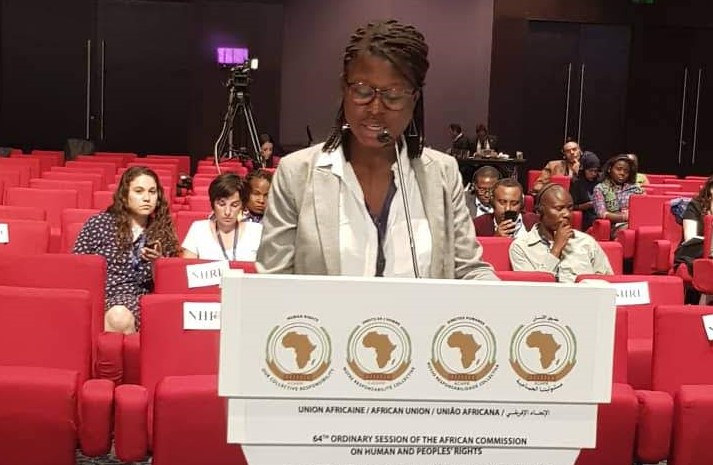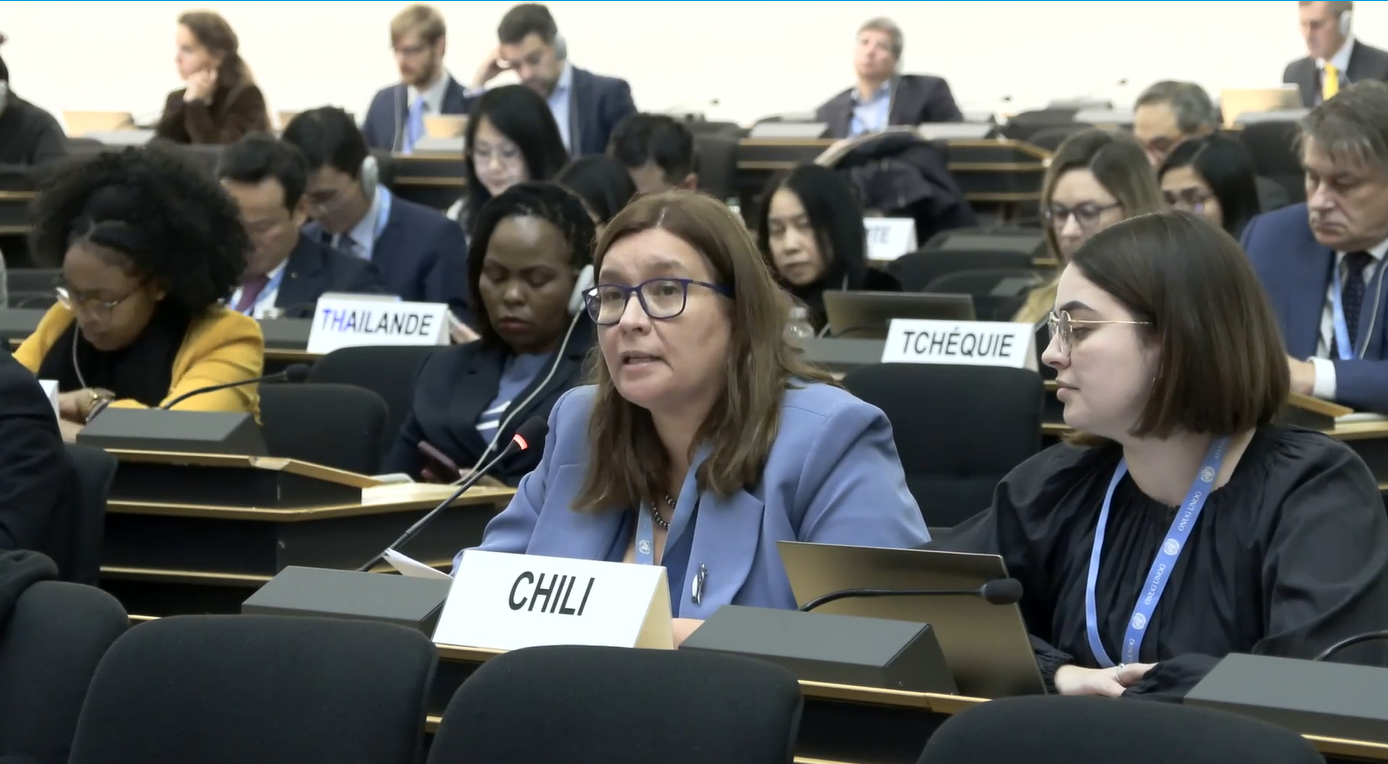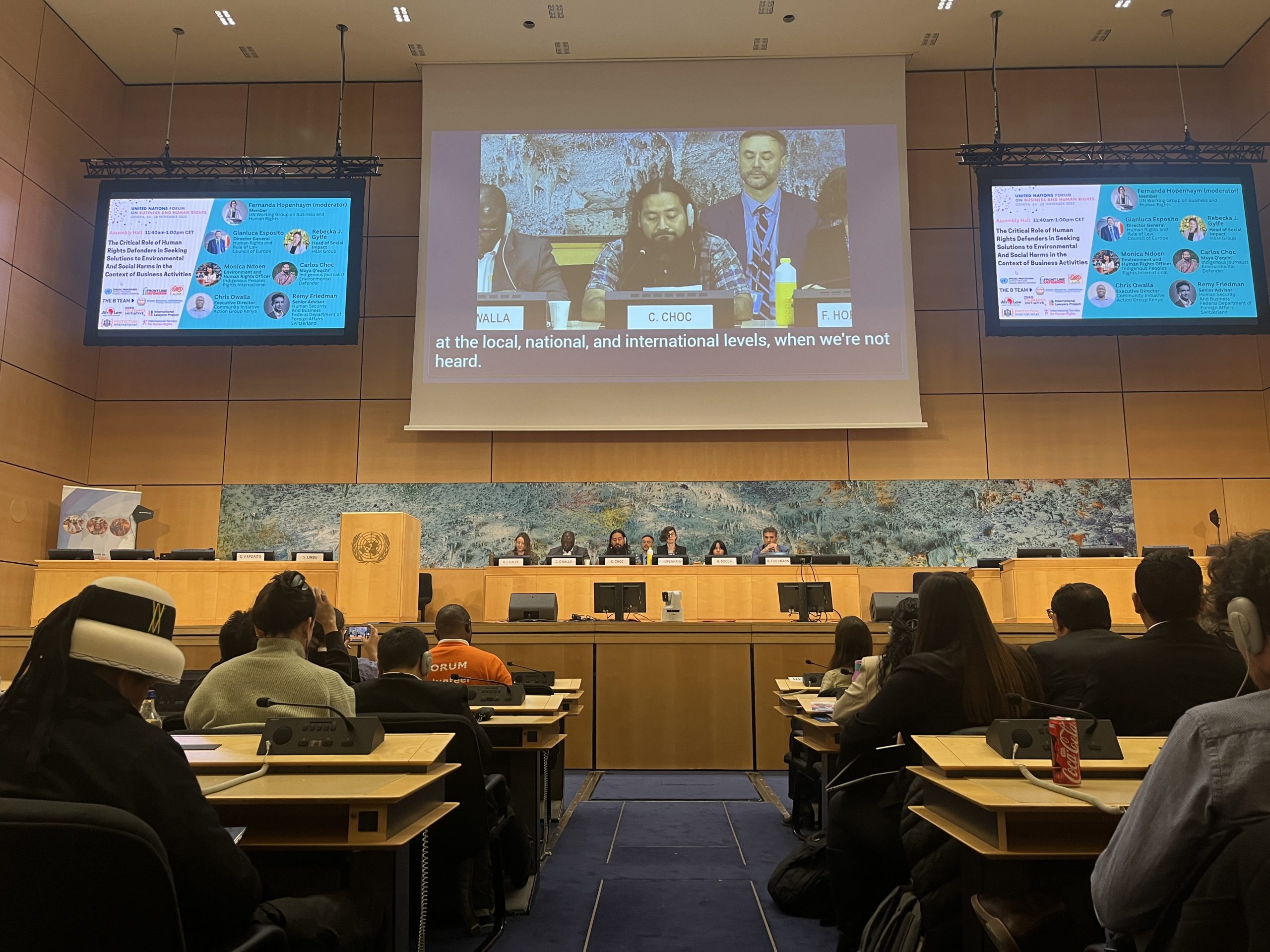ISHR delivered its statement on the situation of human rights in Africa, with a particular focus on human rights defenders, on 26 April 2019. In this statement, ISHR’s Africa advocacy consultant Adélaïde Etong Kame noted the concerning environment in which defenders advocating for the rights of people on the move have to progress. She also depicted an alarming picture of the current situation of defenders in Egypt as well as those willing to engage with international and regional human rights mechanisms.
Indeed, while the African Union declared 2019 the Year of refugees, returnees and displaced persons the situation of defenders working for the promotion and protection of their rights is deteriorating. ‘States are increasingly resorting to the worrying practice of requiring the activities of these defenders to be supervised and monitored by State authorities. In addition, because of the threats and intimidation they face in their countries, defenders may themselves be driven into exile and find themselves in a precarious situation making their work difficult’ said Etong Kame.
Additionally, the statement highlighted the recent wave of repression against human rights defenders in which the government of Egypt engaged. ‘Since the re-election of President Abdel Fattah el-Sisi in March 2018, under the cover of the fight against terrorism, security forces have stepped up their campaign of intimidation, violence and arrests against political opponents and defenders who have issued criticisms, even slight, against the government’ said Etong Kame. She then called on the Egyptian government to end its campaign of repression against all human rights defenders working in the country, one of the worst the country has ever faced.
Finally, this session was also marked by restrictions imposed to the participation of civil society which ISHR did not fail to mention in its statement. ‘You will note the exceptional nature of this session in that a very small number of side events could be organised. This is not due to a lack of will but more to a lack of possibility. Indeed, whether it be the exorbitant prices offered in these premises and despite the relentless efforts of some, it was difficult to find a hotel in the area accepting to rent one of its meeting rooms in order for us to freely enjoy our freedom of assembly’ concluded Etong Kame.
In light of recent events we felt important to remind the government of Egypt that the right to travel to participate in sessions of international and regional bodies for the promotion and protection of human rights is guaranteed by the United Nations Declaration on Human Rights Defenders. Therefore, we called on the Commission to investigate cases of refusal of visas brought to its attention and to ensure a safe environment for defenders at its ordinary sessions.
Contact: Adélaïde Etong Kame, Africa Advocacy Consultant, [email protected]
Photo: ACDHRS/ John Gbenagnon




